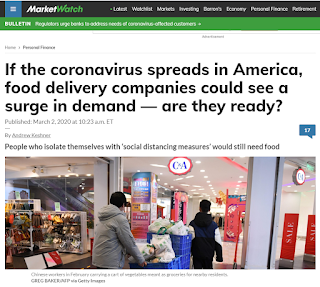Participatory Community Development in Florida in the face of the Anthropocene: Will it hold?
The quest for Food Security in an age of more frequent and intense hurricanes, Covid19 strains of coronvirus, loss of ecological buffer zones and unpredictable extreme weather events and sharp economic downturns and supply chain disruptions.
Abstract:
Food security is an existential concern that today takes on heightened significance when disruptions in food supply, now completely imbricated in global supply chains, can come from so many varied and often unpredictable events exacerbated by climate change, unpredictable disease transmission vectors, a reliance on vulnerable input intensive agricultural systems and a loss of biodiversity buffering systems and genetic variability. The history of America shows periodic resurgence of "victory gardens", community agriculture and local farming movements during periods of war or economic downturns, only to see these movements and the infrastructure they inspire disappear once the crisis has abated. This article examines 5 local food security and community agriculture education experiments in South Florida that the authors of the paper have been involved with through the lens of "participatory community development" to explore whether there is a higher probability of sustainability and endurance when the interventions are embedded in a culture of sustainability education and resiliency planning that expects disruptions to continue far into the future.
The authors of this article, Dr. T.H. Culhane and Dr. Joseph Dorsey, have both grappled with issues of food insecurity in the context of international development. Dorsey worked on improvements in food production with the Peace Corps in rural areas in Africa and Culhane worked on Agroforestry in rural Central America and both of us have an enduring interest in urban agriculture.

The question becomes "what sorts of staple foods can one effectively grow that can supply vital nutrients during times of crisis?
Many people will turn to foods that store well and horde them if they can -- dried grains and pulses and canned goods are expected to fly off the shelves as people take stock of what is going on and stock up on them to get through lean times. Things that "don't go bad" include stimulants like sugar and coffee and tea and flour. But these are precisely the items that run out in anticipation of a crisis. The irony is that these are often the least healthy foods and experts are saying that one of the chief factors affecting mortality from the Corona virus is a compromised immune response.
Talk show host Bill Maher, when interviewing epidemiologist Dr, Anne Rimoin about risk factors for the virus bluntly stated "cut out the sugar, period" and while Dr. Rimoin didn't go that far, she stressed the importance of "lowered sugar intake and a healthy diet.".
The question begging to be answered is, "is it possible for a family or small community to produce all the food it needs to get through a crisis without any inputs from outside? Just how closed a loop can we make it?"
At Rosebud Continuum Sustainability Education Center my wife and I tried an experiment in May of 2019 to see if we could live eating nothing but what we grew on the property for 3 weeks. The mainstay of our diet were eggs from the 22 free range chickens on the property, supplemented with two Tilapia fish we had grown, and then papaya, bananas and salad greens from our raised beds, spiral garden and hydroponics system.
Needless to say, one things that stood out for us was how unsatisfying it felt to rely principally on lettuce, devoid as it is in fats and oils. It made us question the promises of the plethora of articles stating that "vertical farming" and "aeroponics" and "urban farming" will help us feed a hungry planet. The notion is sound -- we do need to shift our food production to the centers of its consumption. The problem is that when you see these operations in practice (and when you look at the pictures used to illustrate the promise of this "soil-free gardening" technology, almost everyone is growing lettuce. One would think we were a race of rabbits!



Comments
› poker › 세종특별자치 출장안마 poker The 9 Best Casinos in North America · 파주 출장안마 10. Cafe Casino in Macau, 논산 출장안마 China · 9. Wild Creek Casino in Reno, Nevada · 8. Café 전주 출장안마 Casino in 태백 출장안마 Los Angeles,